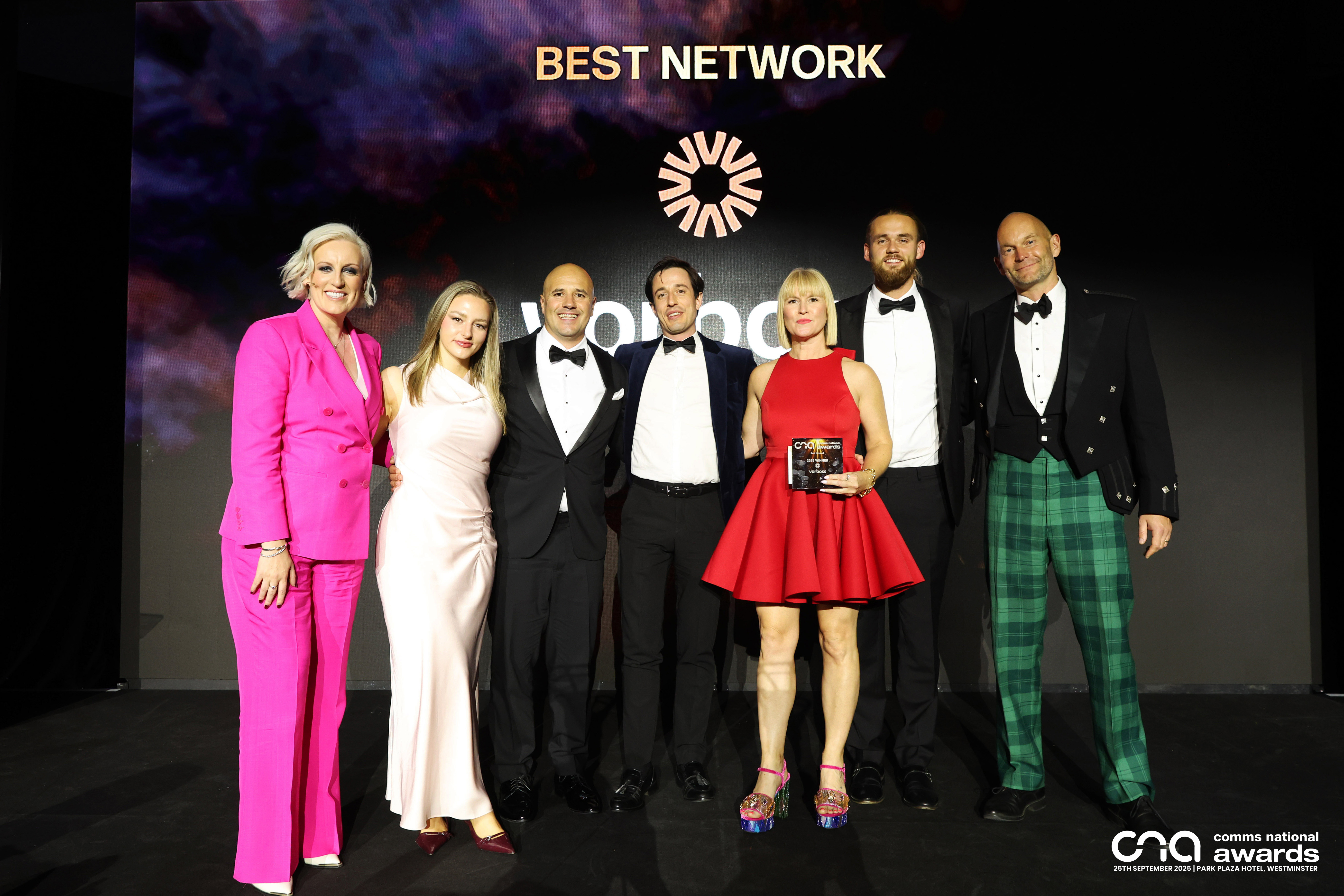Do it once, do it right: empowering London’s businesses with future-ready infrastructure
November 8, 2023
|
4
min read

Highlights
Vorboss has built a business-only fibre network fit for the future, improving London's internet infrastructure. Historically, the UK has had a culture of under-provisioning, but a foresighted approach to infrastructure projects is essential to remaining globally competitive. An alternative to London's aging underground cables, the Vorboss network stays ahead of the upgrade cycle, providing limitless bandwidth for businesses.
Anniversaries are a time to appreciate the present, reflect on the past, and consider the future. As we celebrate another year at Vorboss, one word springs to mind when looking in the rear view mirror and the road ahead: upgrade.
We conceived Vorboss as an 'upgrade' to London's existing internet infrastructure and designed our network to be future-ready without the need for costly retrofits. By provisioning beyond peak capacity from the start, we could create a future-proofed network that didn't require constant updating to handle London's evolving data demands.
Get it right the first time

In the UK, there has long been a culture of under-provisioning. From public toilets and parking to railways and roads, we've historically adopted a 'just enough' mentality that delivers 'just enough' results.
But when the UK encounters usage peaks, its infrastructure creaks. Water systems dump sewage during periods of heavy rainfall. Railway stations close during spells of extreme weather. Energy suppliers promote off-peak use to avoid blackouts.
Whenever demand surpasses the average, there are calls to upgrade our ailing legacy systems. Just last month, the National Infrastructure Commission's five-yearly review made a series of recommendations to modernise Britain's energy, transport, and water networks to boost economic growth. The review had one overarching message: we need an upgrade.
However, large-scale infrastructure retrofits are tricky and expensive. They're a pain for the consumer. They're a headache for the utility provider. They're also wholly unnecessary if we do the project right the first time.
The Thames Barrier, for example, was designed to protect London from never-seen-before tides and huge storm surges. Commissioned in 1972 and finished ten years later, it has safeguarded London for the last 40 years without major works. Foresight in the 70s has helped a formerly flood-risked city grow into a global capital.
The same goes for tech infrastructure. In 2002, Amazon decided to revamp its computing infrastructure not just to handle its current internal IT demand but also its future growth. It moved away from unscalable computing hardware to cost-effective online data centres, effectively inventing cloud computing with the creation of Amazon Web Services in 2006. Initially designed for the support needs of its e-commerce arm, AWS generated $80 billion in revenue in 2022 and has powered the growth of thousands of businesses.
Getting it right the first time pays long-term dividends.
Designed with the future in mind

London is a 'global city' above ground—one of only two cities in the world (alongside New York) to be ranked Alpha ++ by the Globalization and World Cities Research Network for its integration and influence.
But under the streets, London is a city of ageing cables, ranking 60th worldwide for broadband speeds.
To be the world's greatest city, London needs reliable capacity that easily handles today's peak demands and tomorrow's emerging technologies. That's why, when designing our business-only fibre infrastructure, we planned a network that would always stay ahead of the upgrade cycle.
A network for the present and for posterity; one that didn't need patching up every few years or retrofitting for every new tech development.
It wasn't long ago when, as the first business network to offer 10Gbps business internet as a minimum, we were told that it was excessive bandwidth. But will it be excessive in 2025 as London's businesses harness the power and data demands of artificial intelligence? Will 100Gbps business internet be excessive when London's companies use quantum computing to revolutionise the world of work?
Between 2019 and 2023, peak traffic and internet bandwidth increased markedly (with compound annual growth rates of 30% and 28%, respectively). Those thinking 1Gbps is enough at the start of a three-year contract are quickly realising how much the goal posts move, and we're now seeing our competition playing catch up.
The end of unnecessary upgrades

London's businesses are used to operating with bandwidth limitations, so they’re always waiting for the next upgrade. But limitless bandwidth is available now.
With a future-ready network that provides 10Gbps as a minimum and scales to 100Gbps, businesses can stop thinking about bandwidth and start thinking about their business.
Just as unlimited mobile phone packages eradicated the costs of phone calls from our minds, 10Gbps connectivity will help businesses forget about the internet. No more glitchy video calls. No more buffering circles. No more costly upgrades.
As we look forward to the future, hopefully London can start forgetting about unnecessary upgrades, too. Be it improving public spaces or enhancing transport infrastructure, we should do it once, do it right.
By Tim Creswick
CEO and Founder of Vorboss
Tell us about yourself so we can serve you best.
More articles

Heading 1
Heading 2
Heading 3
Heading 4
Heading 5
Heading 6
Lorem ipsum dolor sit amet, consectetur adipiscing elit, sed do eiusmod tempor incididunt ut labore et dolore magna aliqua. Ut enim ad minim veniam, quis nostrud exercitation ullamco laboris nisi ut aliquip ex ea commodo consequat. Duis aute irure dolor in reprehenderit in voluptate velit esse cillum dolore eu fugiat nulla pariatur.
Block quote
Ordered list
- Item 1
- Item 2
- Item 3
Unordered list
- Item A
- Item B
- Item C
Bold text
Emphasis
Superscript
Subscript

Heading 1
Heading 2
Heading 3
Heading 4
Heading 5
Heading 6
Lorem ipsum dolor sit amet, consectetur adipiscing elit, sed do eiusmod tempor incididunt ut labore et dolore magna aliqua. Ut enim ad minim veniam, quis nostrud exercitation ullamco laboris nisi ut aliquip ex ea commodo consequat. Duis aute irure dolor in reprehenderit in voluptate velit esse cillum dolore eu fugiat nulla pariatur.
Block quote
Ordered list
- Item 1
- Item 2
- Item 3
Unordered list
- Item A
- Item B
- Item C
Bold text
Emphasis
Superscript
Subscript

.avif)

.avif)

